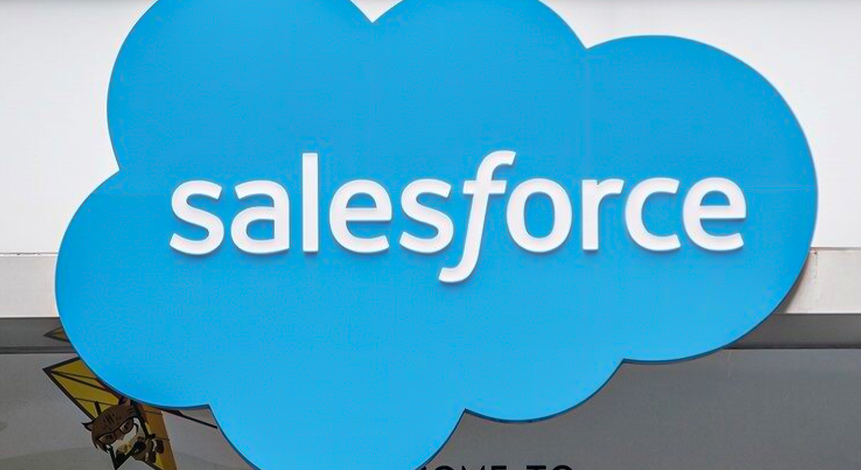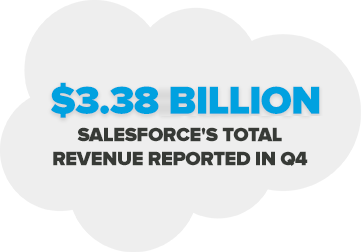
Wednesday, May 27, 2020
Salesforce share price: are Q1 earnings immune from coronavirus fallout?
تم إعداد هذا المنشور من قبل سنشري للاستشارات


With office workers the world over working remotely, Wall Street has been betting big on cloud stocks. Such enthusiasm has seen Salesforce's [CRM] share price pop in the run-up to Thursday's Q1 earnings. That normally means one thing: analysts are expecting solid results when the cloud-based data company reports.
So what should investors and traders of Salesforce’s share price watch out for in the firm’s Q1 results?
When does Salesforce report Q1 earnings?
28 May
What's happening with Salesforce's share price?
Salesforce’s share price is up around 6.5% this year. While the share price experienced a sell-off at the beginning of March - along with every other stock - it has roared back to life, gaining 41% since then as traders bet on cloud stocks. Currently, the share price is trading 9.6% off its $195.72 52-week high. Will Q1 earnings help it get back there?


Will coronavirus hit Salesforce’s revenue?
The big number to watch out for will be revenue. Salesforce does over 70% of its business in the US. And with the nation in the grips of the coronavirus pandemic, this has likely affected how much money Salesforce has pulled in from products like Salesforce Marketing Cloud.
Last quarter, total revenue came in at $3.38 billion, but the impact could be more pronounced in the coming quarters as companies cut spend on software or reduce licenses as headcounts shrink.


Revenue will also be hit by Salesforce's decision to cancel its April Dreamforce conference. This is estimated to have cost $240 million in revenue alone, according to CNBC.
However, Salesforce could benefit from a boom in bricks-and-mortar businesses going online. Last week the company announced a new package to help would-be online entrepreneurs get going:
“We needed to bring the software to bear on this. So we designed these four quick start packages. Essentially, the whole model was that we need to get [customers] running in weeks, not months," said Salesforce CEO Mike Micucci.
In the coming quarters, it'll be interesting to see if this initiative mitigates any hit on subscription revenue.


What are analysts expecting?
Wall Street is expecting Salesforce to post $0.69 earnings per share, down from the $0.93 seen in the same quarter last year. Revenue is pegged at $4.85 billion, up 30% from year.
Could another beat be in store? Salesforce has beaten Wall Street expectations four quarters on the trot. Last quarter, earnings per share came in at $0.66, thrashing analyst expectations for $0.55 a share.


Longer-term, Zacks is predicting that Salesforce revenue will grow 22% this fiscal year, down from the previous year's 29% growth. Yet, that sort of growth could be taken as a sign of strength given current market conditions. Any update on guidance for the full year will be watched closely during the earnings call.
Time to buy Salesforce?
Of the 45 analysts tracking Salesforce’s share price on Yahoo Finance, 25 rate it a Buy and 16 rate it a Strong Buy. An average $194.38 price target would see a 9.3% upside on the current share price.
For traders weighing up Salesforce, there's plenty to consider. In the 2008 financial crisis, software companies came away largely unscathed. Yet, things could be different this time. While companies might not be tearing up contracts with software providers, they could reduce spend. That's going to hit revenues.
Still, if the current downturn accelerates the trend for cloud-based software, now could be the time for traders to buy into Salesforce.
Source: This content has been produced by Opto trading intelligence for Century Financial and was originally published on cmcmarkets.com/en-gb/opto
Disclaimer: Past performance is not a reliable indicator of future results.
The material (whether or not it states any opinions) is for general information purposes only and does not take into account your personal circumstances or objectives. Nothing in this material is (or should be considered to be) financial, investment or other advice on which reliance should be placed. No opinion given in the material constitutes a recommendation by Century Financial or the author that any particular investment, security, transaction or investment strategy is suitable for any specific person.
Century Financial does not endorse or offer opinion on the trading strategies used by the author. Their trading strategies do not guarantee any return and Century Financial shall not be held responsible for any loss that you may incur, either directly or indirectly, arising from any investment based on any information contained herein.
















